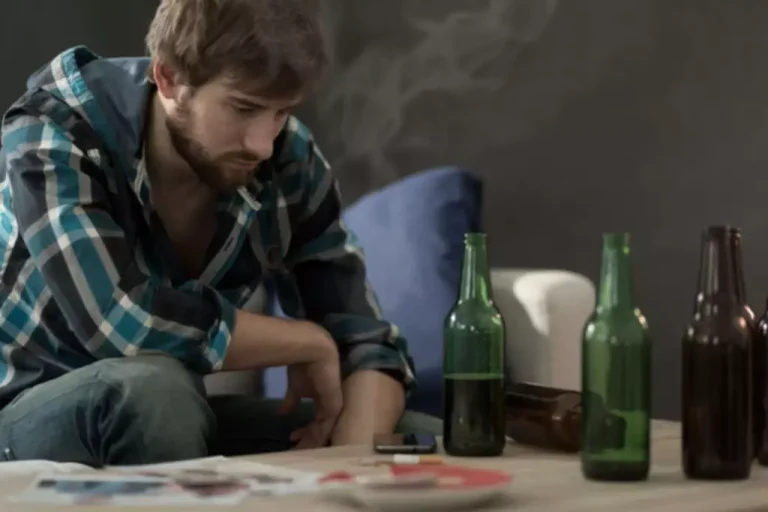
If you’re dealing with severe alcohol withdrawal symptoms, such as anxiety, insomnia, nausea, and hallucinations, among others, then your doctor may suggest medications such as chlordiazepoxide or other benzodiazepines. A dual diagnosis can be complicated to treat, no matter the circumstances. The most common treatment options are included below, but know that recovery requires a personalized treatment plan that best suits your mental health needs. Alcohol and depression are connected in several ways, and the two often feed off of one another. People may turn to alcohol as a way to cope with mood problems, but drinking alcohol can also contribute to symptoms of depression.
- In the United States alone, an estimated 17.3 million adults have had at least one major depressive episode.
- Researchers agree that alcohol and depression have a bidirectional relationship, meaning that depression can cause overuse of alcohol, but overuse of alcohol can also cause depression.
Alcohol Addiction & Depression
Alcohol use can also affect how antidepressants work, which can affect depression treatment. Previous trauma is also a risk factor for alcohol misuse and depression. Children who have major depression as a child may drink earlier in life, according to one study. Recognizing that recovery is often nonlinear, a more nuanced view of treatment is needed, one that acknowledges that there are multiple paths to recovery. Expecting complete abstinence may be unrealistic in some cases and can even be harmful.
Social Media Addiction Symptoms: Recognizing the Signs and Taking Action

In addition those who were depressed at six months had more severe craving for alcohol than those who were not depressed (P value 0.03). Various studies have shown both a metabolic and neurophysiological link between alcohol use and depression 34–42. While some studies have reported gender differences in the link between alcohol use disorders and depression 43–46, others have not 47.

Alcohol Use Disorder and Depression
It may turn out that you’re a good candidate for one of three federally approved does alcohol make depression worse medications on the market. During the first year of the COVID-19 pandemic, adults 50 and older led the way as most likely to increase their alcohol consumption, according to a 2022 study from researchers in California. “And for many individuals, that spike has been maintained,” says Lara Ray, a professor of psychology and psychiatry at the University of California, Los Angeles and a coauthor on the study.
Substance-induced depression is different from major depressive disorder and, by definition, should improve once a person stops consuming substances (such as alcohol). Some of those studies did not identify the substance included in their studies, making the outcomes to all types of abused substances unsupportive in that area. Additionally, only SSRI was examined in combination with medications for alcohol dependence. Consequently, this drives the requirement for future studies that examine other anti-depressants with a different mechanism of action in this clinical setting. Also, the role of psychotherapy in these patients was examined by Brown et al., who evaluated the use of CBT-D in patients with severe depression co-existing with alcohol dependence. It showed that CBT-D had shown significant improvement in depressive symptoms at Substance abuse the beginning of treatment; however, the improvement was non-significantly different after following up 21.
- Secondly, the two disorders may have a causal effect with each disorder increasing the risk of developing the other.
- However, the association of the comorbidity of heavy alcohol consumption and depression on the risk of all-cause and cause-specific mortality remains unclear in the U.S. population.
- In cases where the depressive symptoms are primary, alcoholism has often developed in the course of attempts at self-medication.
- However, use of anti-depressants significantly reduced the incidence of anxiety, insomnia, and substance abuse in these patients 16.
- Many randomized trials have investigated treatments for co-occurring AUD and depressive disorders.
However, this coping mechanism often leads to a vicious cycle where alcohol dependence and depressive symptoms reinforce each other. Binge drinking, in particular, has been strongly linked to depressive episodes, further complicating the relationship between these two conditions. 2019 research suggests that depressive disorders are more common in people with alcohol dependence than in those who engage in alcohol misuse, like binge drinking.
- Three participants were referred for treatment of major depression within the period of the study.
- In addition those who were depressed at six months had more severe craving for alcohol than those who were not depressed (P value 0.03).
- You can also get help from Alcoholics Anonymous or an alcohol treatment center in your area.
- The Centers for Disease Control and Prevention has found that 9 out of 10 adult binge drinkers don’t have a severe alcohol use disorder, but that doesn’t mean alcohol isn’t a problem for them.
- When psychosis is suspected, a general physical and neurological exam should be performed to exclude medical causes such as subdural hematoma, seizures, or hepatic encephalopathy—any of which may be a consequence of AUD.
- Nearly one-third of people with major depression (or major depressive disorder) also have alcohol use disorder.
The mean age of the group was 31.9 years, with majority (84%) of the participants aged below 40 years. The majority (53.3%) of the participants earned an income of less than 143 United States dollars per month. There was documented followup at home for each participant by the community-based health worker (CBHW) twice a week, and the principal researcher (P.I) or assistant (once a week) at Kangemi Heath Centre for a period of 6 months. A follow-up questionnaire was used to determine whether individual was abstaining from alcohol and symptoms that they were experiencing.
- In addition it is important to obtain family history of mood disorder and life time diagnosis of depression since the presence of such histories puts the individual at a greater risk of developing major depression.
- A family history of depression, for example, may be combined with a history of past trauma or the breakup of a marriage to make an individual more vulnerable to depression.
- For example, the criterion of legal problems related to alcohol was removed, and the criterion of alcohol craving was added.

The neurobiologic concomitants of depression contribute to this impairment and increase the risk of relapse. To have a full picture for patient care, patients with AUD should be screened for other substance use. Stigma can be reduced with normalization statements such as “Many people try (cannabis or painkillers in ways that are not prescribed) at some point in their lives; is that something you have tried? ” See the Resources section, below, for SUD screening and assessment tools. People with AUD are 1.7 times more likely to have had PDD in the previous year.


Also, teens who’ve had a bout of major depression are twice as likely to start drinking as those who haven’t. And if you start drinking at an early age, your risk of alcohol use disorder is higher. If you or a loved one is struggling with a co-occurring mental health disorder and alcohol addiction, it’s important to remember that you are not alone. Evidence-based dual diagnosis treatment can lead to positive health outcomes.
Lifestyle Quizzes
Feelings of sadness, lack of energy or trouble sleeping can be common occurrences that individuals experience in their daily lives. Losing a job, the death of a loved one or the end of a relationship can naturally cause feelings of grief. And often, people may use the word “depressed” as a way to verbalize how they are feeling.

Leave a comment